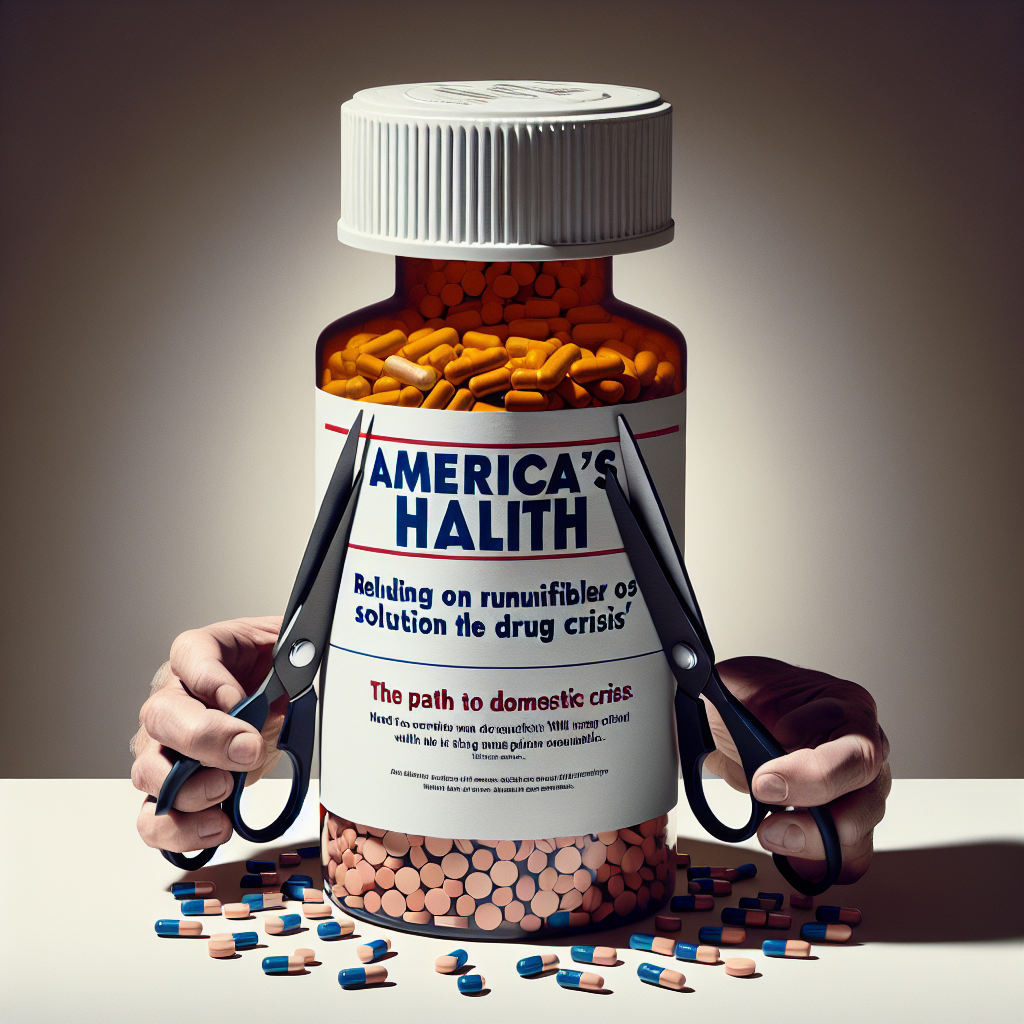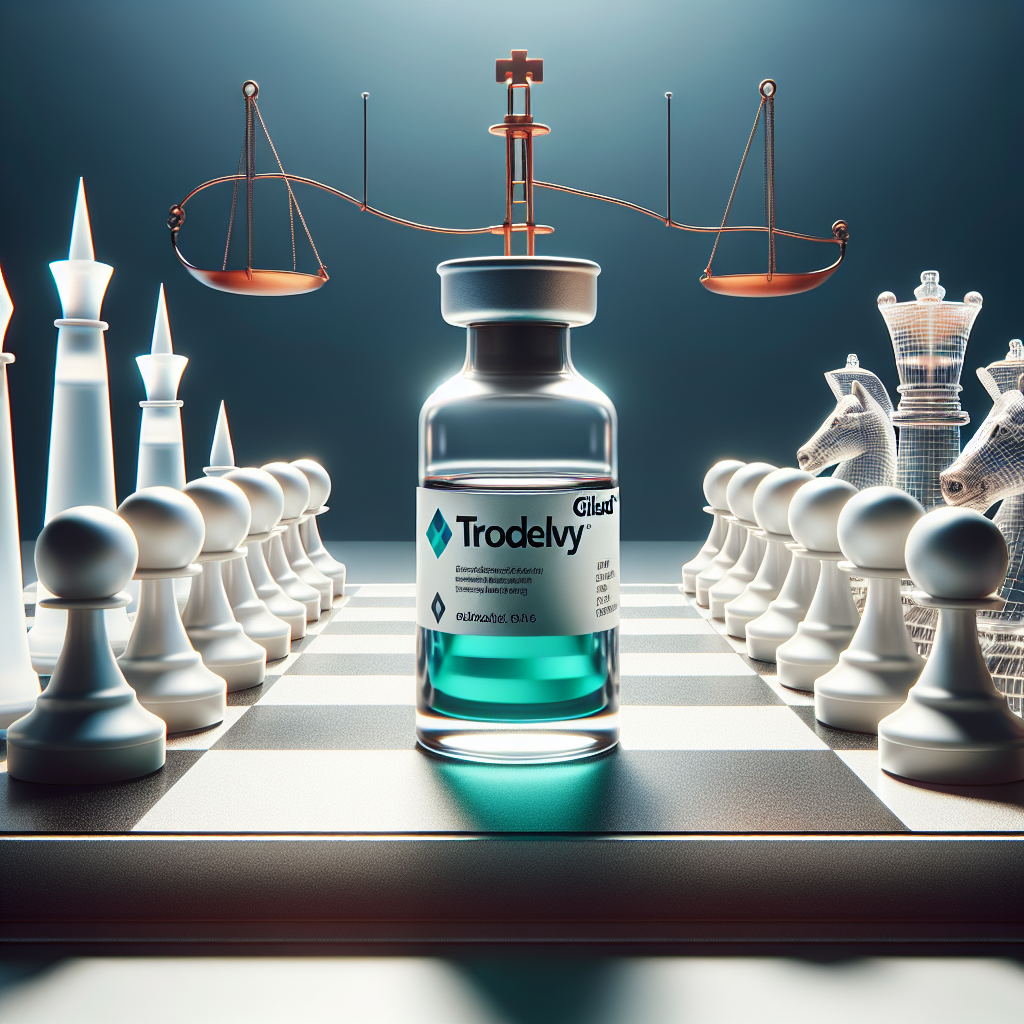Addressing America’s Dependency on Foreign-Made Generic Drugs: Tariffs as a Strategic Solution
The current landscape of the pharmaceutical industry in the United States presents a dual-edged sword: while the nation enjoys the accessibility of generic drugs, it also faces a critical national security and public health crisis stemming from an alarming dependency on foreign-made pharmaceuticals. With over 90% of prescriptions in the U.S. being for generic drugs, the striking reality is that more than 80% of raw materials essential for drug production are sourced from overseas, predominantly from India and China. In light of this overwhelming reliance, the U.S. Commerce Department has launched an investigation into the pharmaceutical supply chain, with expected outcomes that may include significant tariffs on pharmaceutical imports.
The Crisis of Dependency
America’s reliance on foreign-produced medications, including vital generics like antibiotics, blood-pressure treatments, and cancer therapies, raises concerns about patient safety and healthcare stability. This dependence on international supply chains not only jeopardizes American health security but also poses risks to the economy. Instances of drug shortages have proliferated: in 2022 alone, there were 295 essential medication shortages in the U.S., attributed to various factors including manufacturing disruptions abroad.
U.S. Trade Representative Jamieson Greer emphasized the urgency of domestic pharmaceutical production, stating, “We have to reshore pharmaceutical production. We have to do it now.” The forthcoming tariffs proposed by the Trump administration during a recent National Republican Congressional Committee dinner aim to level the playing field and restore American competitiveness in drug manufacturing.
The Need for Tariffs
Implementing tariffs is viewed not merely as an economic maneuver but as a vital strategy for national security and public health. These tariffs could counteract the advantages enjoyed by foreign pharmaceutical companies that benefit from subsidies—such as India’s Production Linked Incentive (PLI) program—enabling them to offer lower prices that American manufacturers struggle to match. As the article from Dow Jones articulates, this economic imbalance has left the U.S. pharmaceutical industry vulnerable and reliant on foreign sources that do not adhere to FDA standards.
The Safety and Quality Concerns
Studies underscore the quality discrepancies between generics produced overseas and those manufactured domestically. A notable study published in the journal Production and Operations Management highlighted that patients taking generics from India faced a 54.3% greater risk of severe adverse health outcomes compared to those receiving generics made in the U.S. or Europe. These findings illuminate the pressing need for a robust domestic manufacturing framework to ensure patient safety and medication efficacy.
The Legislative Framework
The combination of tariffs and robust legislation serves as a pathway to bolster U.S. pharmaceutical production. The proposed PILLS Act, introduced by Rep. Claudia Tenney, aims to incentivize U.S. production of generic drugs through tax credits and bonuses for domestic content. This legislative effort reflects a growing recognition that American pharmaceutical independence is vital for public health and safety.
Short-Term and Long-Term Strategies
In the short term, immediate action is necessary to address supply vulnerabilities for essential medications. For example, amoxicillin, a critical antibiotic, remains in short supply in the U.S., with few domestic manufacturers remaining. Strategic purchasing agreements alongside proactive investments in local manufacturing capacities are essential to mitigate this risk.
In addressing heparin supply, it’s crucial to diversify sources beyond the current reliance on China, as imported heparin poses unacceptable national security concerns. The FDA’s previous consideration of cattle-based heparin represents a potential solution, and emerging shifts in policy could encourage the exploration of alternative sourcing methods.
The Path Forward: Political Courage Required
In conclusion, while recent discussions around tariffs present a promising avenue for economic reform, they must be coupled with comprehensive legislative support to rekindle America’s generic drug manufacturing base. The challenges are significant, but they offer a unique opportunity for U.S. policymakers to demonstrate political resolve in reshaping a safer, more sustainable pharmaceutical landscape. It’s imperative to act now, not just to protect the economy, but to safeguard the health and lives of millions of Americans reliant on accessible, effective medications.
As we look toward the future, the success of these initiatives will depend on collaborative efforts between Congress, the FDA, and domestic pharmaceutical manufacturers to reinstate a reliable framework for drug safety and availability. Only through collective stewardship can America escape its current vulnerabilities and build a resilient pharmaceutical industry.
















